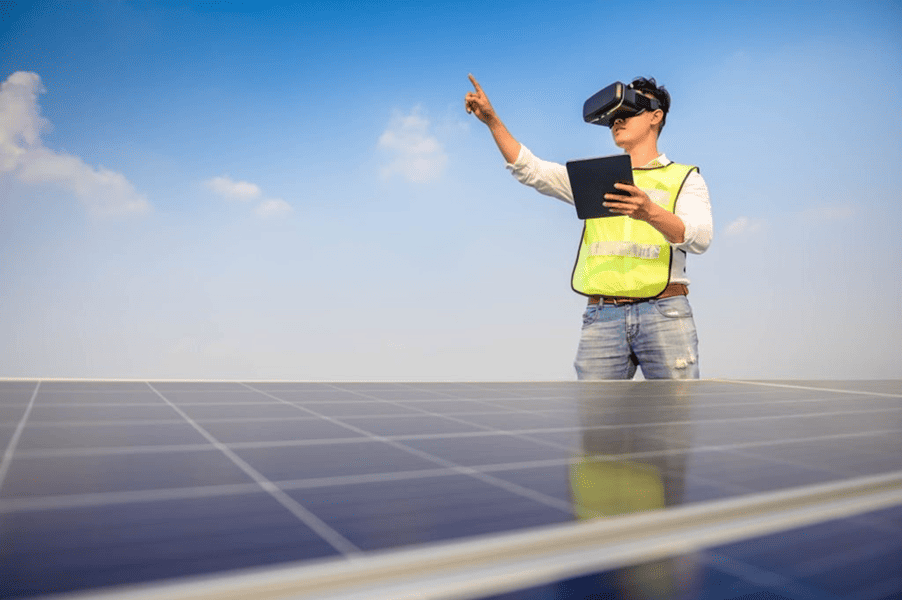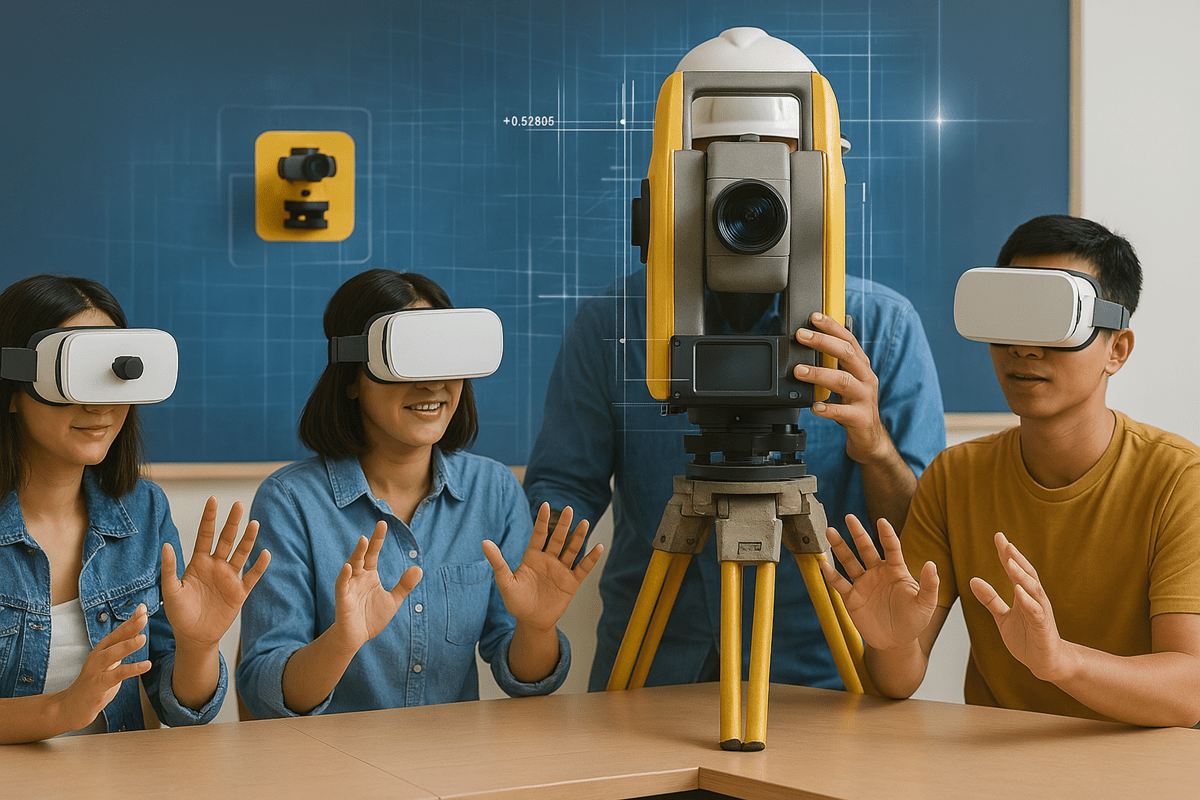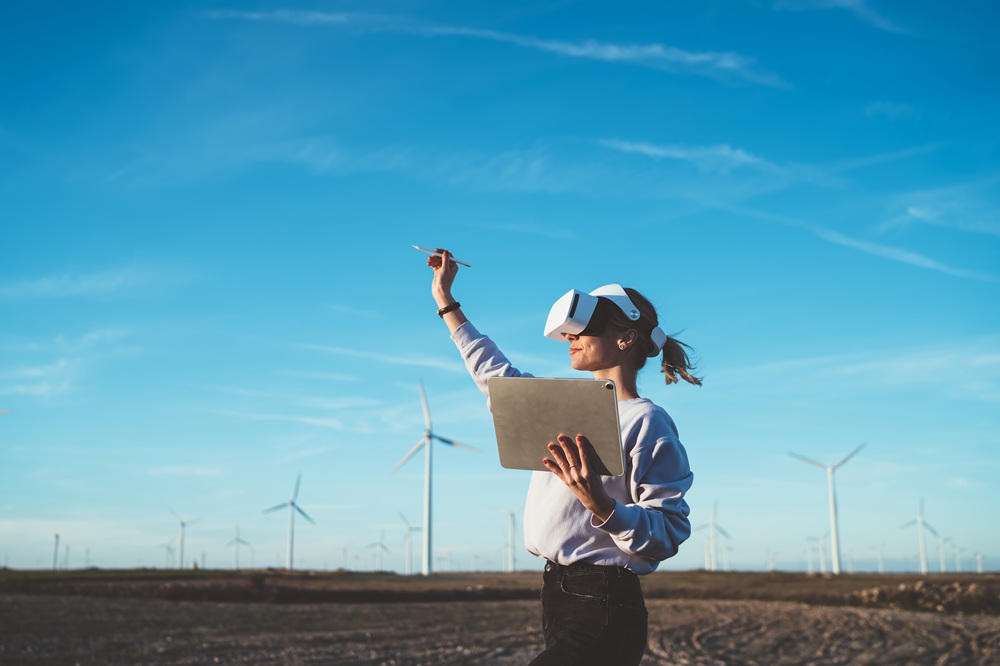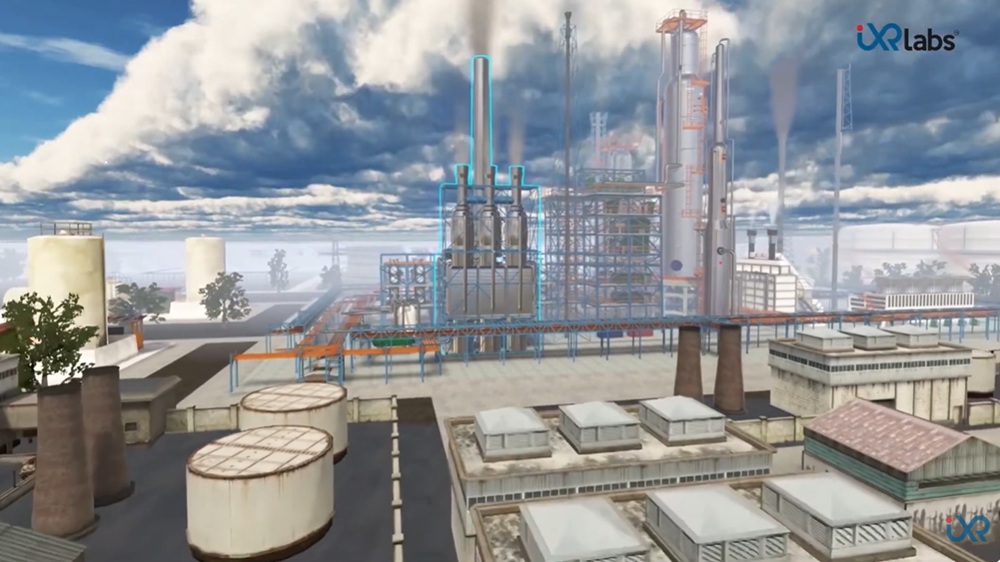Using Virtual Reality for Experiential Learning in College
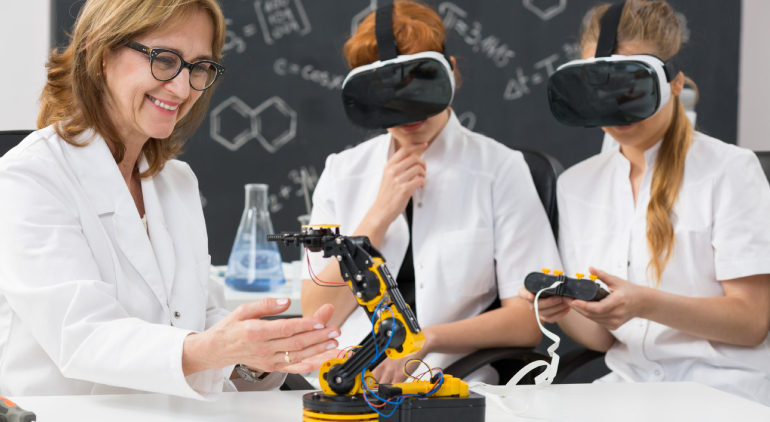
For a while now, Virtual Reality (VR) has been explored in the field of education in order to improve students experiment learning experience.
Instead of just going through the concepts in a book, racking our brains trying to learn it by heart and memorize it, VR allows students to interact with what they’re studying virtually and really understand the science behind them.
Students can gain knowledge about experiments that are often too complex to be allowed in a regular lab, expensive or dangerous for the classroom.
Technology truly is the ultimate key to deep, conceptual learning, and e-learning virtual reality takes it to the next level by not only providing a whole new user experience but also making it fun.
Be it going on a spacewalk, exploring the insides of a plant stem, the Mariana Trench or a simple chemistry experiment, just wearing a VR Headset is enough to transport you to a whole new dimension of learning!
In this blog, we will be exploring how using virtual reality science experiential learning has immense potential in the field of science.
What is Experiential Learning?
Many colleges, educators, and other stakeholders in an educational institution often have one question in mind - “What is the most convenient way that students gain information?”
Of course, it is a given that this answer might vary for different students, but one common answer is to retain and comprehend knowledge while gaining hands-on experience.
This is the integral idea that encloses the concept of experiential learning- to learn new information and try to reflect on it by relating it to something and applying it in real life.
For example, let’s assume you were to attend a Marketing class and watch a quirky advertisement on TV.
You recall from class and realize how their success recipe relies on catering to their target audience in a very compelling manner.
This application to real life is an example of experiential learning. iXR Labs has delved deep into how VR is linked to ensuring deep learning by students.
Virtual Reality for Experiential Learning
Both virtual and augmented reality have come to be of use when it comes to experiential learning. They have been proven to be effective e-Learning methods.
Talking about VR learning experiences for experiential learning in college, in specific, it is used to simulate a situation and involve a lot of senses of the student, giving them a hands-on experience like no other.
As students are able to virtually interact with the concepts presented to them, their learning process becomes more personal and immersive.
They are left to their own volition , where they can apply concepts on their own and reflect on it. Real-time interaction and feedback after every use of VR in the classroom will help students apply the knowledge gained in the most optimized way.
"Ready to elevate your college experience? Embrace Virtual Reality for immersive learning adventures today!"
Benefits of using VR for experiential learning
Benefits of using VR for experiential learning
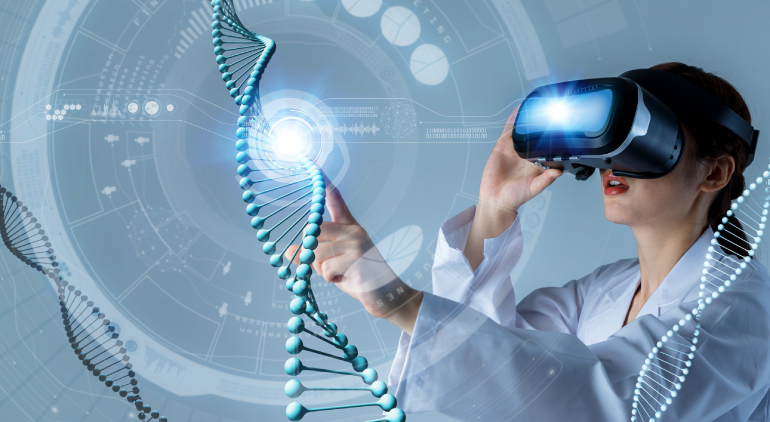
Before we delve deep into the potential of e-learning virtual reality for Experiential Learning in the fields of science, engineering, etc., let us analyze the general benefits of VR and how it involves experiential learning.
1. Changing the way of teaching
While traditional methods allow students to access a class only once and take notes in order to remember it for later, VR Classrooms provide unlimited access to practice sessions, along with the quick feedback needed for effective teaching.
This will greatly benefit students. It has also been proven multiple times that visualization is more effective than reading information. VR offers new forms and methods of visualization that can accurately illustrate the required concepts.
2. More room for Creativity
Visually stimulating classes would tend to make students get more creative. There would be more things to ponder about, and they could come up with interesting solutions.
Now, imagine a scenario where students experience an immersive module on the Human Circulatory System.
With the help of a controller, they can look inside the body and get a sense of what the role of the heart is, and how Red Blood Cells are crucial in the everyday process of circulating blood to various organs.
Such ‘look-see-do’ modes of learning encourage students to become more creative by exploring, identifying, and experimenting with the content at their own pace.
3. Industry Acclimatization
VR also leaves room for ample communication between students, helping them become more social. There is a myriad of students that shy away from experiential learning through virtual reality due to anxiety or fear of judgment.
They can develop their skills and work towards bettering their confidence in a safe space before practically applying it.
To encourage overall growth, they can also be used to have difficult conversations in the professional world, such as firing someone or talking to the manager.
4. Active Recall
VR consists of “active recall” which means that when you're gaining information about something, you are stimulating your memory. This works wonders at retaining memories and is more effective than passive recall.
This can include the traditional methods of learning, including re-reading facts or streaming a video.
Experiential learning, particularly through VR learning experiences, has proven to provide a higher retention rate for students, where they retain 90% of what they experience as compared to 10% of what they read.
Now that we have talked about the overall benefits of Virtual Reality, let’s scope in on VR Labs – a new trend that’s taken the Education Industry by storm!
Virtual Reality Labs in Today’s Time
VR Labs are simulative labs that branch out of Virtual Reality such that they allow students to undergo simulations in three-dimensional space.
 Get the App from Meta Store: Download Now
Get the App from Meta Store: Download Now
That they are allowed to virtually engage with a particular item and really understand the science behind it. Let’s take a look at its relevance in colleges currently.
1. In Science
Using VR Labs for scientific experiments is probably one of the most effective ways of teaching a concept to students as conceptualizing it becomes easier.
The logic behind them requires a certain level of imagination as it cannot be seen by the naked eyes.
This gap is bridged by Virtual Reality, and students will be able to see what is happening during the experiments, be it the double bonds and triple bonds between atoms, Netwon’s Laws and is applications or anything else!
2. In Engineering
Setting up labs and equipment costs lakhs of money and VR labs will prove to be relatively cost effective.
All the students need to do is wear the required headgear, and they will be able to understand various aspects of engineering, including mechanical, electrical, and other branches.
They can easily understand the working of an induction motor, or analyse how a computer automatically shuts down due to over-heating. Every concept can be visualized and thus understood better by engineering students.
They can even wear a VR Headset and head straight into a thermal power plant to see how it works!
3. In Medicine
VR Labs can be used in various branches of medicine, such as human anatomy, physiology, biochemistry, dissection etc. and help universities save up on a lot of resources.
They can easily explore the working of various organs in our body using 3D and understand it much better than watching a video or reading about it.
In 2018, a project was published where Virtual Reality was used to help health professionals and students become empathetic towards old aged patients that dealt with diabetes or Alzheimer’s disease.
VR enabled them to simulate a patient with age-related diseases and familiarize medical students with how they were supposed to approach such patients.
4. In Architecture
Designing buildings in order to satisfy clients requires architects to produce quality projects such that clients would be able to clearly understand the concept.
There must be no limits in the design communication This is where three-dimensional digital modeling comes into play, and architectural students can start early by implementing it in college in their early years.
5. In Business Schools
Various B-school colleges such as Harvard have adopted VR Labs to help simulate case studies in order to improve students’ problem solving skills. They will be able to empathize and adapt to situations better now.
In order to improve the overall skills of students, colleges in the United States used VR for activities such as placing students on top of the Tokyo Tower in Japan.
Along with the added sound effects, it seemed so realistic that students no choice but to overcome their fears.
Similarly, they were also transported back to the 1970’s where they solved a case study on Ford’s where they had to prevent gas leaks and rupturing of the fuel tank.
The potential of Virtual Labs is still unexplored. There are many companies that offer cross platforming, where the students are not limited to using VR on their smartphones, but can also do it on their laptops or iPads.
This will give a highly gamified learning experience. Remote education is the need of the hour right now, and what better way can educational institutions achieve it if not by indulging in learning through virtual reality, the next big thing?
Virtual Labs are here to stay and they will improve the ways of experiential learning like no other.
Conclusion
The growing sophistication of educational technologies is truly marveling! One can get access to VR through a cardboard box and smartphone.
This gives students a huge shot at learning concepts intricately and ensuring that they apply them in real life and comprehend them much greater than just reading a textbook. This is the true bridge between knowledge and understanding.
iXR Labs is one such company that is striving to offer the best technological solutions to supplement students’ education and help candidates get ready for real-world applications.
Providing VR Labs in the fields of science, engineering, medicine and architecture is our forte. We will continue to remain updated with the trends of technology this year. Stay tuned!echnology this year. Stay tuned!
.png)
